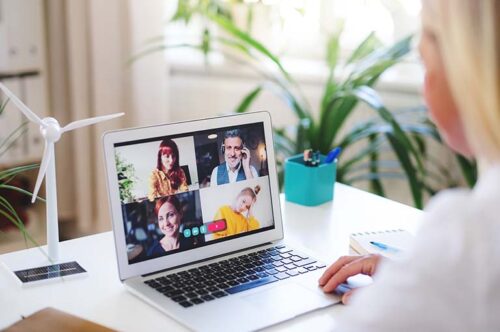This blog looks at how UDL helps people who learn and think differently to succeed.
UDL recognises a key truth: learner variety is normal, not exceptional. While traditional learning methodologies can force people who learn differently to adapt to rigid systems, Universal Design for Learning (UDL) takes a different approach. It provides principles to design learning environments that cater to diverse needs. This change is especially powerful for learners with learning differences, neurodivergence and disabilities, creating paths to success that traditional learning approaches might block.
The hidden challenges in learning environments
People who learn and think differently often face unseen barriers in learning and workplace settings. These include:
- Processing differences: People with dyslexia, ADHD or autism may process information differently than neurotypical learners.
- Executive functioning challenges: Many neurodivergent learners find it hard to plan, organise or manage time. Often, these skills are assumed rather than taught.
- Attention variability: Some people struggle to focus during long videos but excel with interactive learning content.
- Language and communication barriers: Learners whose first language is not English and those with language processing disorders may find complex vocabulary or fast verbal instructions difficult.
- Hidden disabilities: Many learners don’t share their learning differences. They might lack formal diagnosis, fear stigma or have other personal reasons. According to Census 2022, more than 1 in 5 people in Ireland have a disability, with projections showing that adults needing disability services will increase by 17% by 2032.
Why UDL benefits both employees and businesses
Embracing UDL in the workplace benefits both employees and businesses. Employees enjoy environments that support different ways of learning and working, making them happier and more productive at work. A Workday study found that 41% of companies see improved employee wellbeing as the main reason to invest in diversity initiatives.
UDL helps people who learn and think differently. Businesses benefit too. By using UDL principles, organisations can:
- Expand their talent pool
- Improve team collaboration
- Develop all employees to their full potential
- Build a reputation for valuing everyone
Studies show that when companies support employees with different thinking styles, 93% of neurodivergent people and 63% of neurotypical people are more likely to want to work there and stay longer.
Moving from accommodations to UDL
The old method of support was to provide accommodations to people when they encounter a barrier to learning. Accommodations are often only made available to people who request them or prove they need help. People can feel singled out and may not want to ask for help.
UDL helps people by creating learning environments that avoid these barriers altogether. They offer choice and variety while removing barriers for everyone. This means learners don’t have to explain their learning differences or request special treatment.
In an eLearning course:
- An outdated approach might include video content. A person with a hearing impairment might need to request a transcript and wait for it before they can continue.
- A UDL approach would include video content with captions and a downloadable transcript from the start. It might also deliver the same content as a podcast and as plain text. This allows all learners including those with hearing impairments, English as a second language, those in noisy environments and those who process written text easier to complete the learning content in a format that suits them.
How UDL helps people: the transformative power
UDL makes big changes in how we think about learning. It does this by:
- Identifying problems with the environment, not the person
- Making learning accessible for everyone, not just individuals who ask for help
- Giving everyone their own learning path instead of making everyone follow the same route
- Removing barriers and gives people choices that help them succeed
Remember, UDL helps people who learn and think differently. When you design for people who learn and think differently, you create better learning experiences for everyone. Whether you’re just starting your UDL journey or looking to enhance existing learning, our team can help you design your own eLearning experiences or build a bespoke eLearning project with you.
References:
- Central Statistics Office. (2023). Census 2022 profile 4: Disability, health and carers.
- Department of Health. (2021). Disability capacity review to 2032: A review of social care demand and capacity requirements to 2032. Government of Ireland.
- National Disability Authority. (2024, November). Factsheet: Disability statistics briefing information.
- Workday. (2022). Global blueprint for belonging and diversity.








